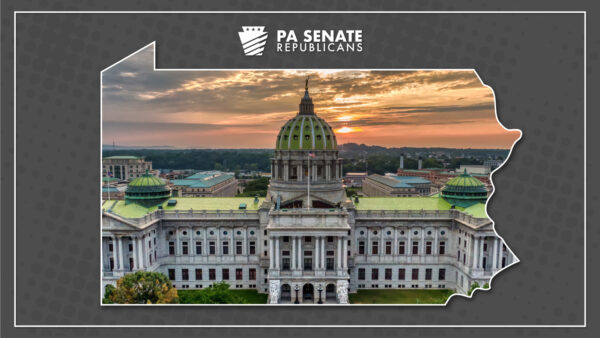
HARRISBURG – Preventing blackouts, meeting Pennsylvania’s future energy demands and ensuring timely processing of permits were among the top issues discussed at today’s Senate Appropriations Committee hearings on the 2024-25 state budget featuring the Department of Environmental Protection and the Liquor Control Board.
Department of Environmental Protection
Committee members questioned interim Acting Secretary Jessica Shirley about what the administration was doing to ensure the commonwealth’s power grid can handle increased demands for electricity. The ability to produce energy was also a focus, with experts predicting Pennsylvania will not be able to meet its energy demands by 2030.
Interim Acting Secretary Shirley acknowledged that DEP is not communicating with regional power grid organization PJM about potential energy shortfalls in Pennsylvania that are projected over the next six years.
The current year’s budget for DEP included funding for 15 new positions specifically to reduce permitting delays. However, numerous examples were shared of valuable economic development projects that have been chased away from Pennsylvania by DEP’s deficient permitting process, which remains lengthy and challenging for job creators.
The amount of new money proposed for plugging abandoned wells also raised questions, as 86% of 2022-23 Well Plugging Account funds were used for personnel, not plugging wells.
Video Highlights
PJM is raising the alarm about an increase in demand for energy over the next six years that Pennsylvania may not be able to meet. The potential consequences for consumers were discussed.
Concerns were raised about DEP’s proposed solutions to energy needs, many of which are years away from viability.
The governor’s budget address does not include any potential revenue from the Regional Greenhouse Gas Initiative carbon taxes, but it left the door open for those taxes to be levied on Pennsylvania consumers if the Shapiro administration’s court appeal is successful.
DEP’s permitting process was criticized for being slow, redundant and deficient. DEP testified that some of the most common types of permits can take up to 176 business days to approve. Doubts were raised about whether the situation will improve.
The minimal impact of DEP’s “money-back guarantee” for permitting review was explored.
DEP’s problems with chasing away businesses and jobs has placed an increasing burden on local property taxpayers.
The department was encouraged to work with the Department of Community and Economic Development if funding is approved for business site development to avoid the kind of costly delays that have cost Pennsylvania valuable economic development projects in the past.
Gov. Josh Shapiro is taking credit for plugging more abandoned oil and gas wells than the previous administration, but the improvements were primarily the result of new federal funding. Interim Acting Secretary Shirley acknowledged the state’s well-plugging fund does not actually plug wells. Questions were raised about how wells are prioritized for plugging.
An update was provided about how proposed additional funding for PFAS testing would improve identification of contamination.
DEP provided additional information on follow-up actions the department is taking to monitor any impacts from the East Palestine train derailment last year.
PA Liquor Control Board
PLCB Chair Tim Holden was questioned about state liquor store price increases and lower profits, as well as the lack of products driving Pennsylvanians to travel to other states to purchase alcohol. Lawmakers also discussed the anticipated increase in the cost for purchasing alcohol and cost trends in the next five years.
In addition, committee members sought details on resolving outstanding COVID-19 violations, alcohol abuse prevention initiatives and efforts to ensure restaurants and bars are responsibly serving alcohol.
Video Highlights
Concerns were raised about the decrease in PLCB profits, even as prices to consumers have increased. Questions were also posed about Pennsylvania’s competitiveness with neighboring states.
Looting and rioting in Philadelphia last year cost PLCB more than $2 million, but thankfully no employees were hurt. One of the affected stores still has not reopened due to extensive property damage.
PLCB was urged to work with businesses that continue to be impacted by years-old minor violations of Gov. Tom Wolf’s COVID pandemic restrictions. Questions were also raised regarding whether outdoor operations could be continued permanently.
PLCB is expecting modest increases in operational costs in future years and is building those projections into its budget planning.
An update was provided on alcohol education and prevention programs.
PLCB was encouraged to continue fostering good relationships with smaller distilleries.
An update was provided on PLCB’s new sales system and how it integrates with the Board’s website.
You can find recaps and video from every Senate budget hearing at PASenateGOP.com.
CONTACT: Jason Thompson
